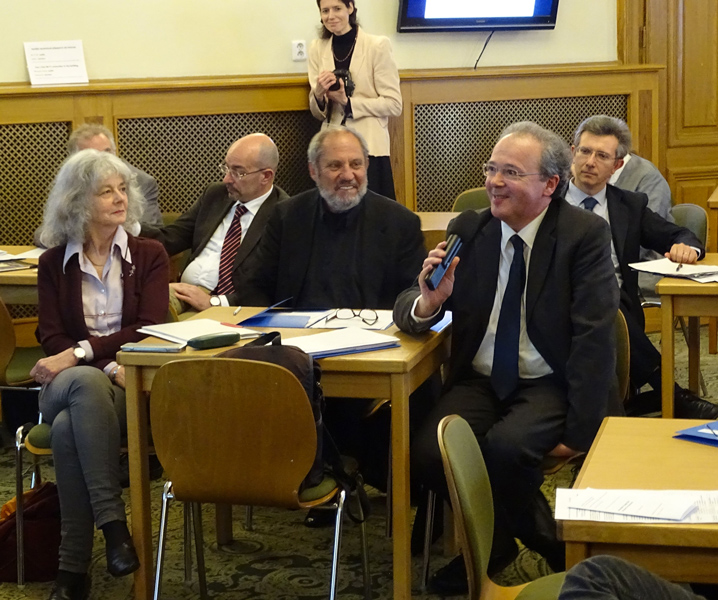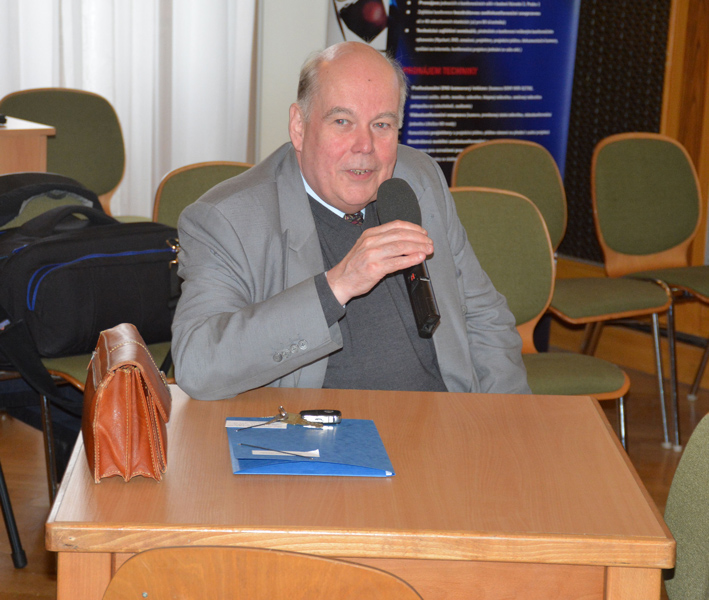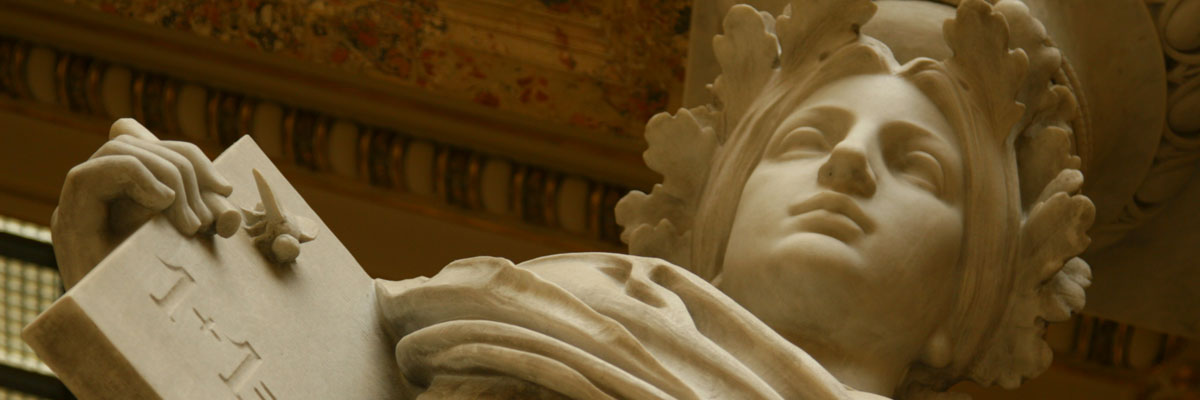Under the auspices of the president of the Academy of Sciences of the Czech Republic, Prof. Jiří Drahoš, the Academy of Sciences of the Czech Republic, the Mozart Society in Czech Republic and the Don Juan Archiv in Vienna held the international “Current Issues of Mozart Research” conference, marking this year’s 260th anniversary of Wolfgang Amadeus Mozart’s birth and the 225th anniversary of his death. It was held on 16 and 17 April 2016 in the main building of the Czech Academy of Sciences in Prague. In his opening salutary speech, the Vice-President of the Academy of Sciences, Dr. Pavel Baran, informed the foreign participants that upon its foundation back in 1890 the institution was called the Academy of Sciences and Arts, and added that its initiator, the architect Josef Hlávka, had 30 years previously built the Hofoper in Vienna. Hlávka was closely personally associated with the composer Antonín Dvořák, which resulted in, among other things, the creation of the Mass in D major, “Lužany”.
The Academy’s third President, the philologist Josef Zubatý, in 1885 accompanied Dvořák on his third tour of England, and wrote about the artist a book, which was published the following year in Leipzig. With regard to Prague’s great Mozart tradition, as Pavel Baran pointed out, the organisers’ idea of holding in the city a biennial international Mozart conference under the patronage of the Academy of Sciences of the Czech Republic is well justified. The significance of Prague as a Mozart centre was also highlighted by Prof. Dr. Manfred Hermann, the Chairman of the Akademie für Mozart-Forschung within the Stiftung Mozarteum Salzburg. The possibilities of further activities and collaboration in this respect were outlined by Dr. Hans Ernst Weidinger, the sponsor of this year’s conference and the founder of the Don Juan Archiv Wien. The speakers at the forum’s opening session also included Dr. Zdeněk Uherek, Director of the Institute of Ethnology of the Academy of Sciences of the Czech Republic, and Dr. Tomislav Volek, President of the Mozart Society in Czech Republic. The opening of the conference was rounded off by a performance of two Mozart arias by the baritone Roman Janál, accompanied on the piano by Ladislava Vondráčková.
The participants of the conference, organised by a committee made up of Milada Jonášová, Tomislav Volek and Manfred Hermann Schmid, heard 14 papers, delivered by researchers from Germany, Austria, the USA, Italy, Israel and the Czech Republic. Several contributions were focused on thorough analysis of certain Mozart works and the compositional techniques applied in them. Prof. Ulrich Konrad (Würzburg) presented in a groundbreaking manner – by analysing Mozart’s numerous solutions to Padre Martini’s puzzle-canons in his early KV 73x set – a still overlooked component of Mozart’s development. Similarly, Prof. Manfred Hermann Schmid (Tübingen/Augsburg) thoroughly analysed the problems of the authorship of the recitatives in Mozart’s opera La clemenza di Tito. On the basis of her findings in the period correspondence and Prague copies of opera scores abroad, Milada Jonášová introduced the latest discoveries pertaining to the earliest reception of the opera Idomeneo. Resulting from her analysis of sources dating from between 1787 and 1850, preserved in Hamburg, Prof. Maurer Zenck (Hamburg) documented the local performances of Mozart’s operas in German translations and arrangements, which in the discussion that ensued was compared with the totally different type of audiences Mozart experienced in Prague. Other singular compositional techniques applied by Mozart were elucidated in comparisons of the settings of the same Italian librettos by Mozart and his predecessors, dealt with by Raffaele Mellace (Genoa) and Luciano Tufano (Naples). The polyglot and specialist of libretto research Prof. Jürgen Maehder (Salzburg/Lugano/Taipei) presented his essay on the 20 librettos on the historical subject, which was set to music also by Mozart in his early opera Mitridate, re di Ponto, drawing attention by his pointing out that the libretto studies still remain constrained by merely focusing on the librettos of successful musical works. With his paper, titled Ein Modell für Mozart: “Das Serail” von Joseph Friebert, Dr. Hans Ernst Weidinger pleased the conference participants by providing the information that his Don Juan Archiv has succeeded in procuring from a private owner valuable sources for another singspiel treating the contemporary “Turkish” theme, which Mozart had evidently known prior to composing his Zaide and Die Entführung aus dem Serail. Based on her life-long research, Eva Badura-Skoda (Vienna) delivered a summary of the numerous types of keyboard instruments Mozart played and composed for, with the most intriguing of them being a combination of harpsichord and (removable) hammerklavier. Based on the discoveries of sources from the Lobkowitz archive, and re-interpretations of well-known facts, Tomislav Volek presented a critical account of Baron Gottfried van Swieten’s interferences into Mozart’s life. For his part, P. Petrus Eder, OSB (Salzburg), exposed the finding of a unique source, an extensive collection of vocal canons hailing from the Salzburg choristers’ milieu, starting with Caldara’s pieces and enriched up until the post-Mozart time. Other interesting papers were delivered by Eva Neumayr (Salzburg) and Benjamin Perl (Tel Aviv).
The first day of the conference was concluded with a lecture recital of Mozart’s keyboard music given by Prof. Siegfried Mauser, President of the Universität Mozarteum in Salzburg. Following the papers given on the second day, a number of conference participants discussed the previously unknown print of a text and its settings by Mozart, Salieri and one “Cornetti”, titled Per la ricuperata salute di Ofelia, and preserved at the Czech Museum of Music. At the end of the conference, new publications were presented: the more than 1,000-page book written by Tomislav Volek, this year celebrating his 85th birthday, titled Mozart, die italienische Oper des 18. Jahrhunderts und das musikalische Leben im Königreich Böhmen, whose publication is being prepared by the Juan Archiv in Vienna, and Volume 23 of the yearbook Mozart Studien, which – following the closure of the Hans Schneider publishing house in Tutzing – will be issued in Vienna.





















